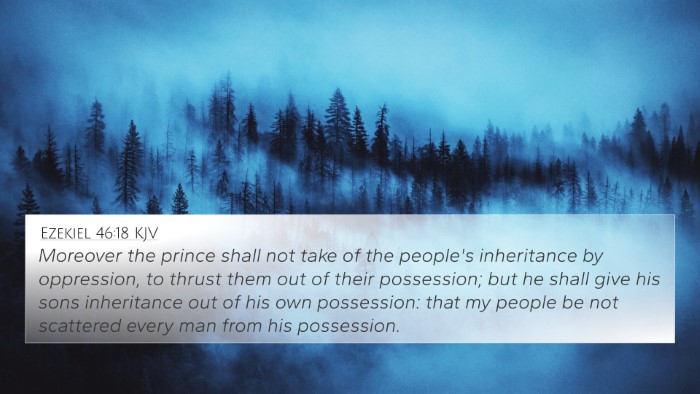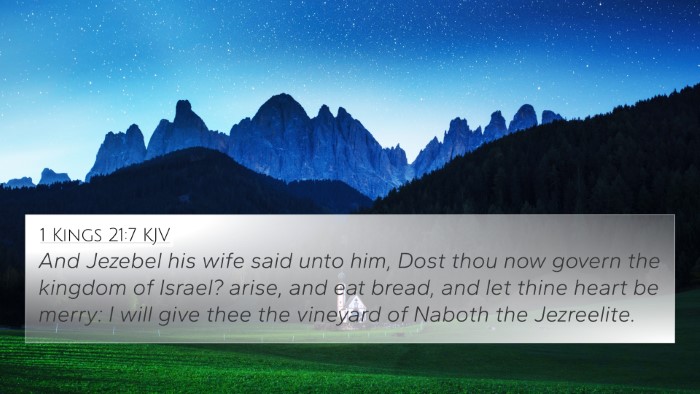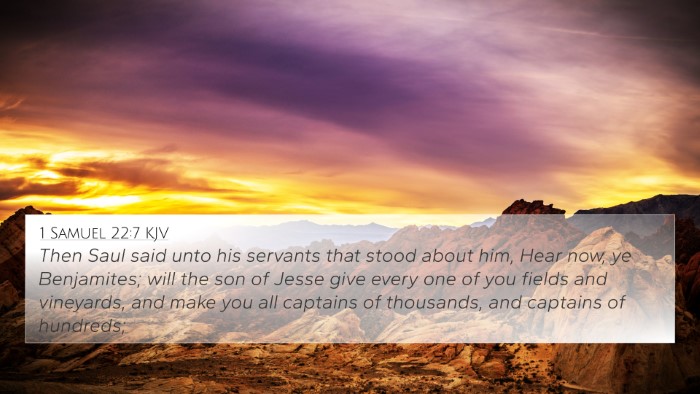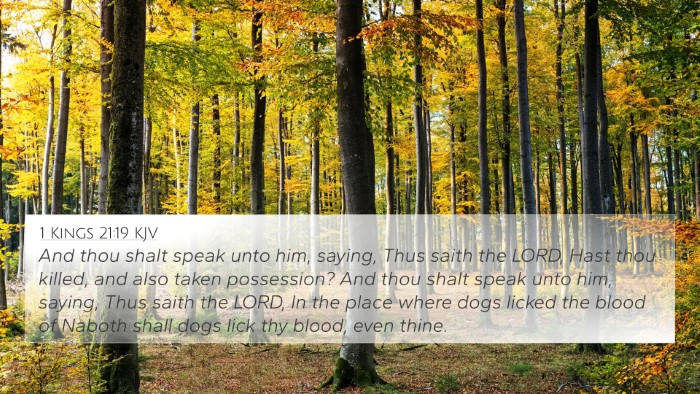1 Samuel 8:14: Verse Overview
This verse is part of a pivotal moment in the history of Israel where the people ask for a king to rule them, rejecting God's sovereignty as their king. The verse states:
"And he will take your good and give them to his servants."
The consequences of this request are significant, illustrating a shift from a theocratic to a monarchic system.
Contextual Analysis
In examining 1 Samuel 8:14, it is crucial to understand the context in which Israel demanded a king. The chapter reflects Israel's desire to be like other nations, leading to a series of foundational and thematic implications throughout Scripture.
Commentary Insights
-
Matthew Henry:
Henry emphasizes the folly of Israel's request to abandon God's direct rule for human leadership. He underscores that by asking for a king, the Israelites were not only rejecting Samuel’s leadership but also God's providential governance.
-
Albert Barnes:
Barnes notes that the establishment of a monarchy would fundamentally alter the socio-political landscape of Israel, leading to burdens and hardships imposed by a king. He points out that kings demand allegiance and resources, which can lead to exploitation.
-
Adam Clarke:
Clarke elaborates on the consequences of monarchy and how kings can consume the people's resources. He warns that their decision would lead to social disintegration and loss of freedom under royal rule.
Thematic Connections
This verse ties into several major themes across the Bible, including:
- Leadership and Authority: The request for a king symbolizes humanity's persistent struggle with authority and governance.
- Rejection of Divine Rule: It represents a broader narrative of rejecting God in favor of earthly leadership, echoing throughout both Old and New Testaments.
- Consequences of Sin: The verse foreshadows future difficulties that Israel would face as a result of straying from God's will, resonating with themes of disobedience.
Bible Verse Cross-References
To further understand 1 Samuel 8:14, examine these cross-references:
- Deuteronomy 17:14-20: Outlines God's instructions regarding kingship and the responsibilities of a king.
- 1 Samuel 10:17-19: God reveals the people's hearts and true intentions behind their request for a king.
- 1 Samuel 12:12-15: Samuel addresses the people about the ramifications of choosing a king.
- 1 Kings 11:1-4: Explores the consequences of having a king, especially regarding idolatry.
- Isaiah 30:1: Discusses the folly of seeking human leadership instead of divine guidance.
- Matthew 20:25-28: Jesus contrasts worldly leadership with servant leadership, relating to the burdens kings may impose.
- Romans 13:1-7: Discusses the nature of civil authority and the Christian response to governing powers.
Applications and Lessons
The implications of 1 Samuel 8:14 extend to how believers understand leadership, authority, and God's sovereignty. Key takeaways include:
- Recognizing the importance of divine authority in personal and communal lives.
- Understanding the potential pitfalls of human leadership and governance.
- Reassessing personal desires for control and security versus reliance on God.
Conclusion
1 Samuel 8:14 serves as a reminder of the complexities of leadership and the necessity of placing trust in God's sovereignty over earthly systems. The historical and thematic analyses deepen the understanding of this significant transition in Israel's governance.
Further Study
For those interested in exploring the connections between biblical texts further, there are valuable tools for Bible cross-referencing available, including:
- Thematic Bible concordances.
- Bible reference resources for understanding verse parallels.
- Cross-reference guides tailored for deeper biblical study.






